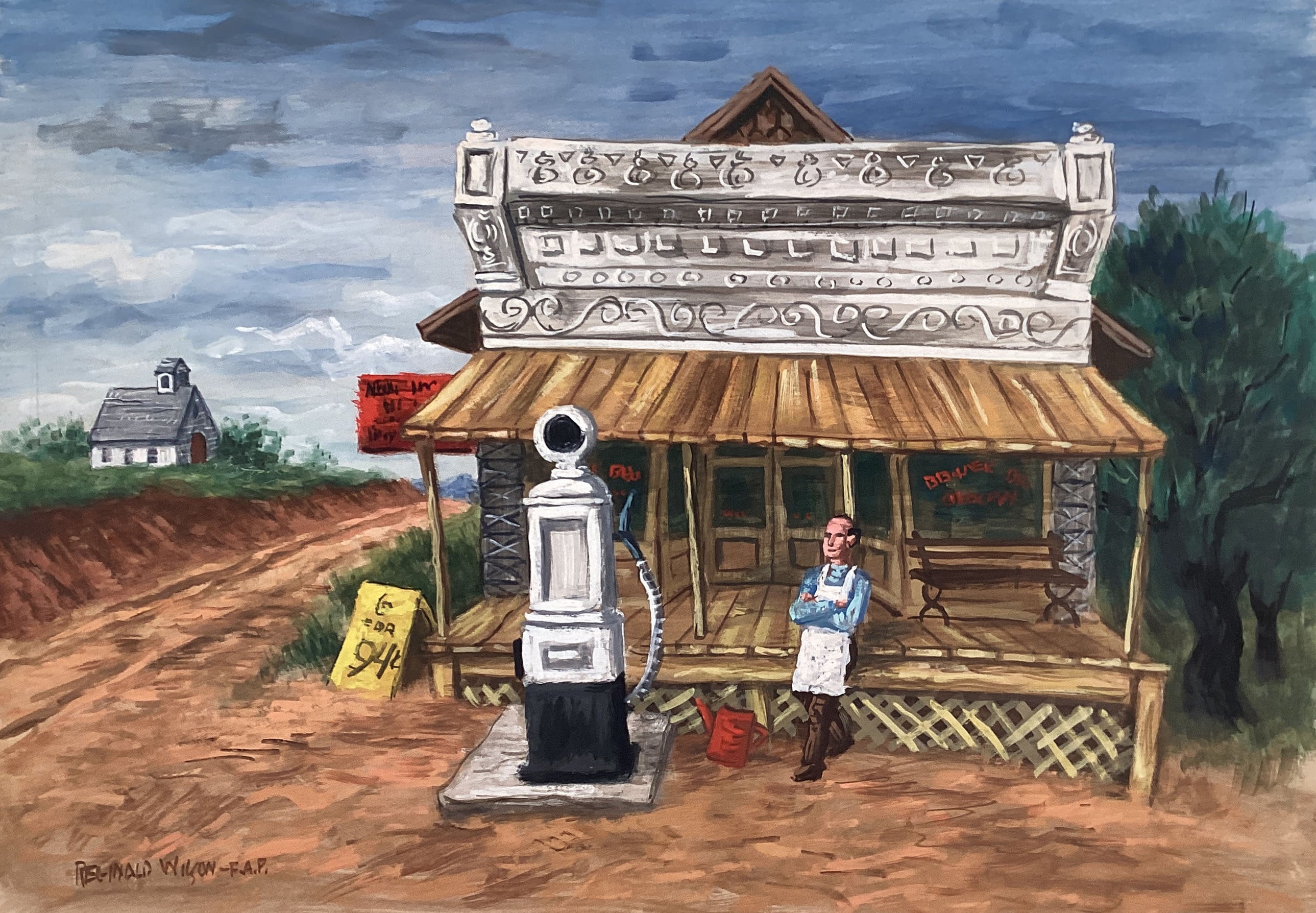
Country Store
Country Store (ca. 1939) by Reginald Wilson is a vivid and intimate depiction of rural American life, rendered in gouache and watercolor on board. The scene captures a slice of everyday existence, centered around the humble yet socially vital setting of a general store—a place where goods, gossip, and community intersect. Executed with bold, fluid brushwork and a restrained yet expressive palette, the composition reflects both observational clarity and emotional warmth.
Created during the late 1930s, this work aligns with a broader movement in American art that sought to document and dignify ordinary life during the Great Depression era. Like many artists working under or alongside New Deal art programs, Wilson embraced a documentary realism infused with human empathy. The country store, as portrayed here, becomes more than a physical structure—it is a symbol of resilience, connection, and continuity in small-town life.
Wilson’s use of gouache and watercolor lends the image a textural immediacy. The matte surface and layered washes create a tactile richness, while the balanced composition draws the viewer into the quiet rhythms of rural America. Figures—perhaps customers or townsfolk at leisure—are rendered with understated gesture, their presence contributing to a larger sense of community narrative rather than individual portraiture.
Now housed in the Modern and Contemporary Art collection of the Metropolitan Museum of Art, Country Store stands as a compelling example of American regionalist drawing from the period. It testifies to Wilson’s skill as a draftsman and storyteller, and to the enduring power of art to reflect both the particularities of place and the shared experiences of a nation in transition.
Choose options


Country Store
About Artist
Reginald Wilson
